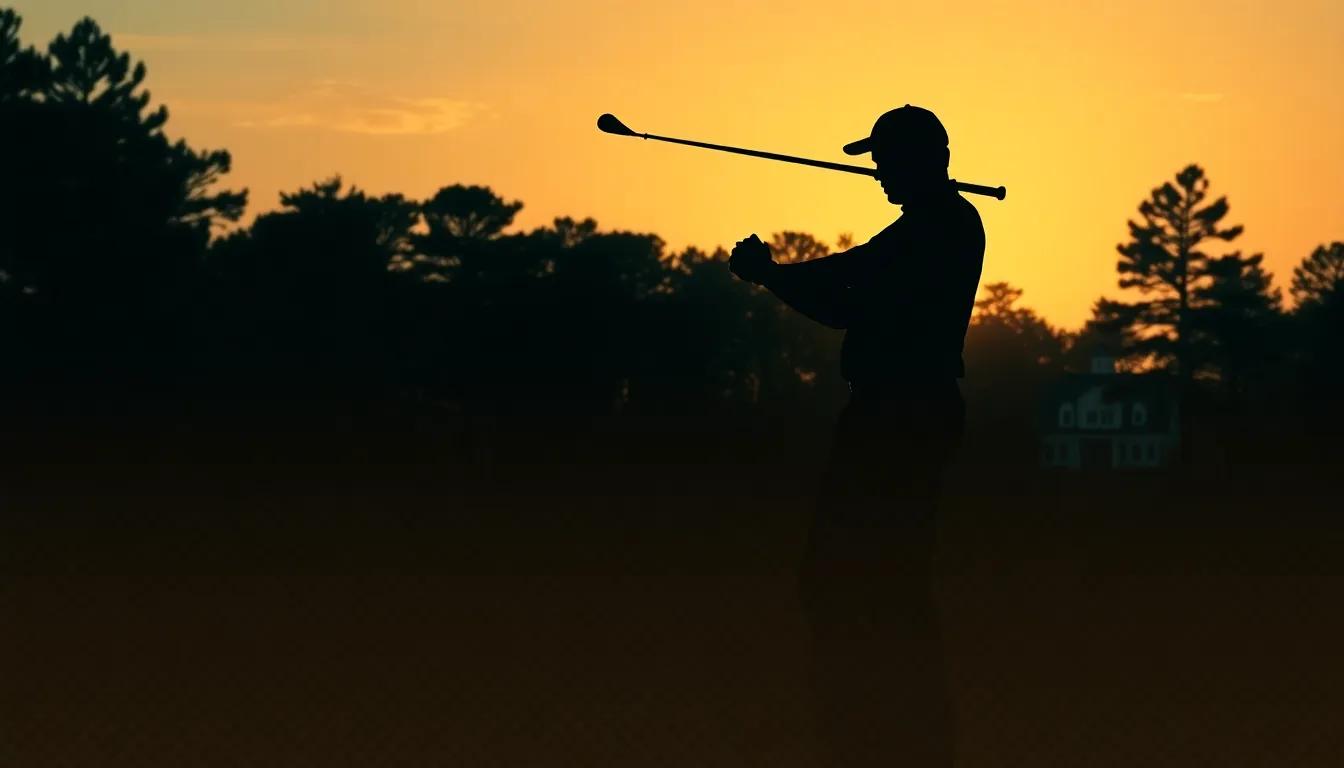Arizona State Edges Texas in Dramatic Finish at Sahalee, But Slow-Play Penalties Steal Headlines
Arizona State captured the Sahalee Players Championship on Sunday, edging top-ranked Texas by a single shot thanks to senior Michael Mjaaseth’s clutch birdie on the final hole. It’s a promising start for the 12th-ranked Sun Devils, who are rebuilding after losing first-team All-Americans Josele Ballester and Preston Summerhays to graduation.
But the exciting finish to this fall-opening tournament was partially overshadowed by an unprecedented wave of slow-play penalties that affected multiple players and teams throughout the event.
Officials handed out 15 strokes worth of penalties over the tournament, including several in Sunday’s final round. In the penultimate group, Texas’ Christiaan Maas, Arizona State’s Bowen Mauss and Pepperdine’s Mahanth Chirravuri each received one-shot penalties for missing two checkpoints. Another group featuring North Carolina’s Keaton Vo, Washington’s Jake Foley and Arizona’s Connor Hamm faced stiffer three-stroke penalties for missing three checkpoints.
The first round saw similar issues, with U.S. National Development Program player Ronin Banerjee, Arizona’s Tianyi Xiong, and Oregon’s Tim Chang all receiving one-shot penalties.
While the penalties didn’t dramatically alter the team standings, host Washington took the biggest hit, dropping from a tie for seventh to ninth place. Pepperdine slipped from tied for sixth to seventh.
The U.S. National Development Program juniors still managed an impressive fourth-place finish, six shots behind third-place UCLA and three ahead of fifth-place San Diego State. North Carolina and fourth-ranked Florida (which finished 10th) were both missing their top players due to Walker Cup commitments.
Veteran Officials, Clear Guidelines
The tournament employed a veteran rules staff led by Jim Moriarty, who regularly officiates NCAA Championships and USGA events. They implemented the same time-par and checkpoint system used in NCAA postseason play, with an overall time par of approximately 4 hours and 45 minutes.
Officials took extensive measures to communicate pace-of-play expectations. They:
- Highlighted each hole’s individual time par on every scorecard
- Placed signage around the course
- Verbally reminded coaches and players of the policy on starting tees
- Assigned one player in each group to track their pace
Checkpoints were established at holes 4, 8, 13, and 17. Groups missing more than one checkpoint during a round faced penalties, though they could be cleared if within 14 minutes of the group ahead. Despite these measures, six groups still incurred penalties, while 18 of the 24 groups in Sunday’s final round hit every checkpoint without issue.
The group that received three-shot penalties on Sunday missed their final checkpoint by about 2 minutes and were 16 minutes behind the group ahead after completing the eighth hole. In scoring, officials discovered that Connor Hamm, who was responsible for tracking time, hadn’t done so, and the group was “completely unaware” of the pace-of-play policy, according to Moriarty.
Maas similarly failed to log his group’s times, explaining that his coaches collect players’ phones during competitive rounds. His group missed the third checkpoint at No. 13 by approximately 20 minutes and finished their round 22 minutes behind the group ahead.
Tense Aftermath
The review process for Sunday’s penalties was extensive and created some tension. Some players initially refused to sign their scorecards, and when coaches arrived, one observer described the scene as a “three-ring circus.” Eventually, the appeals committee informed players that both decisions were unanimous and final.
“Officials are reluctant to give out penalties because they’re afraid of bad publicity,” Moriarty said. “We try to enforce the rules as fairly and evenly as possible.”
Washington head coach Alan Murray called the penalties frustrating but acknowledged that “for the vast majority of players, it wasn’t a problem.” He also expressed confidence in Moriarty’s officiating.
“Jim’s always done a really great job running events, and I would trust his ability to oversee things accordingly,” Murray said. “I wasn’t enthused that our guy got a three-stroke penalty, but when you look at the black and white of it, that group was entitled to get a three-stroke penalty. You just have to grin and bear it.”
Another coach added: “We had A-plus officials. They did their job, even when unpopular.”
Course Setup Factors
Several coaches pointed to the course setup as a contributing factor. While Moriarty had asked coaches if the time-par numbers were acceptable during their pre-tournament meeting, no one could have predicted how difficult scoring would be.
The field, which was a combined 194 over par last year, ballooned to 271 over par this year. Two of the checkpoint holes (Nos. 8 and 17) ranked among the most difficult on the course, with the 8th being the toughest hole and 17th ranking fifth. These two holes alone accounted for 56 doubles or worse. During the final round, one group had all three players putt their balls off the third green from inside 30 feet.
Sahalee, already challenging with over 300 out-of-bounds stakes placed by officials, played even tougher due to some borderline hole locations.
“In hindsight, we probably could’ve done a better job of preparing the golf course and coordinating the time par correctly,” Murray admitted. “A couple of the hole locations were just extremely tough this year. If anything, we probably got a couple of things wrong.”
North Carolina coach Andrew DiBitetto, whose team was affected by the penalties, offered a balanced perspective:
“Sahalee has quickly become one of our favorite tournaments,” DiBitetto said. “What happened with the slow-play penalties is unfortunate. The players involved and I’m sure their coaches didn’t want that to occur, and we didn’t think it required a penalty, but we respect the ruling and move on.”
“There’s a lot on the line these days with teams, individuals, PGA Tour U, etc. and I hate this happened, but it’s better now as opposed to later in the year,” he added. “Hopefully lessons have been learned and we move forward.”





